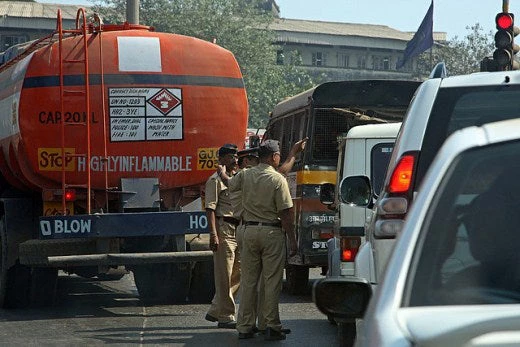The standard definition of political instability is the propensity of a government collapse either because of conflicts or rampant competition between various political parties. Also, the occurrence of a government change increases the likelihood of subsequent changes. Political instability tends to be persistent.
Economic growth and political stability are deeply interconnected. On the one hand, the uncertainty associated with an unstable political environment may reduce investment and the pace of economic development. On the other hand, poor economic performance may lead to government collapse and political unrest. However, political stability can be achieved through oppression or through having a political party in place that does not have to compete to be re-elected. In these cases, political stability is a double edged sword. While the peaceful environment that political stability may offer is a desideratum, it could easily become a breeding ground for cronyism with impunity. Such is the dilemma that many countries with a fragile political order have to face.
Political stability is by no means the norm in human history. Democratic regimes, like all political regimes, are fragile. Irrespective of political regimes, if a country does not need to worry about conflicts and radical changes of regimes, the people can concentrate on working, saving, and investing. The recent empirical literature on corruption has identified a long list of variables that correlate significantly with corruption. Among the factors found to reduce corruption are decades-long tradition of democracy and political stability. In today’s world, however, there are many countries that combine one of these two robust determinants of corruption with the opposite of the other: politically stable autocracies or newly formed and unstable democracies.
Some see political stability as a condition that not only precludes any form of change, but also demoralizes the public. Innovation and ingenuity take a backseat. Many seek change in all sectors of life--politics, business, culture--in order to have a brighter future through better opportunities. Of course change is always risky. Yet it is necessary. Political stability can take the form of complacency and stagnation that does not allow competition. The principles of competition do not only apply to business. Competition can be applied in everything – political systems, education, business, innovation, even arts. Political stability in this case refers to the lack of real competition for the governing elite. The ‘politically stable’ system enforces stringent barriers to personal freedoms. Similarly, other freedoms such as freedom of press, freedom of religion, access to the internet, and political dissent are also truncated. This breeds abuse of power and corruption.
Vietnam, for example, is controlled entirely by the ruling party. The economy is one of the most volatile in Asia. What once was thought of being a promising economy has recently been in distress. Vietnam’s macro economy was relatively stable in the 1997-2006 period, with low inflation, a 7 to 9 percent total output expansion annually and a moderate level of trade deficit. But Vietnam could not weather the adverse impact from the 1997-98 Asian financial turmoil, which partly curbed the FDI flow into its economy. Starting in late 2006, both public and private sector firms began to experience structural problems, rising inefficiency, and waste of resources. The daunting problem of inflation recurred, peaking at an annualized 23 percent level for that year.
On the supply side, cross-country competitiveness assessments show that Vietnam is falling behind relative to comparator economies. The proliferation of so-called “zombie” workers at Vietnam's state-owned enterprises (SOEs) is only one of many manifestations of the economy’s underperformance. Economic growth last year was 5.03 percent. SOEs account for 40 percent of GDP. Many of them are hurting because they took advantage of easy credit to make foolish investments. Over the years, powerful interest groups within the ruling Communist Party have largely resisted calls to reform the SOEs. Senior party officials allegedly regard them as their personal cash cows.
While it is true that some African states who have been able to achieve high growth rates are stable, a number of relatively low performing African states also have remarkably stable political systems. When we talk about political stability in the context of growth, leaving aside resource-driven bubbles, we mean a specific kind of stability: the rule of law, strong institutions rather than powerful individuals, an efficient bureaucracy, low corruption and an investment enabling business climate. Indeed, what we really mean is that stable governance is crucial for growth. This admittedly academic distinction is an important one to recognize. Governance goes well beyond just politics.
When political stability comes with having one party or a coalition of parties in office for a long time, it may eventually be detrimental. The economy may do well in terms of attracting foreign direct investment because stability means a predictable political environment. However, other aspects of the society might suffer because of complacency, lack of competition, and opacity. The economy eventually suffers because of these. Consequently, stable governments do not necessarily lead to higher economic growth. India is another case in point. India’s performance on the economic front in the first 30 years of post-independence era, which epitomized political stability, exhibited 3 to 3.5 percent level of economic growth, lowest in the last sixty years. In contrast, in the last 20 years when India saw as many as four Prime Ministers, industrial growth rates jumped to double digits, something that had not happened before.
Bottom-line: Not all forms of political stability are equally development friendly; much depends on the extent to which stability translates into good governance.
Photo: Mumbai traffic, India. Simone D. McCourtie / World Bank



Join the Conversation